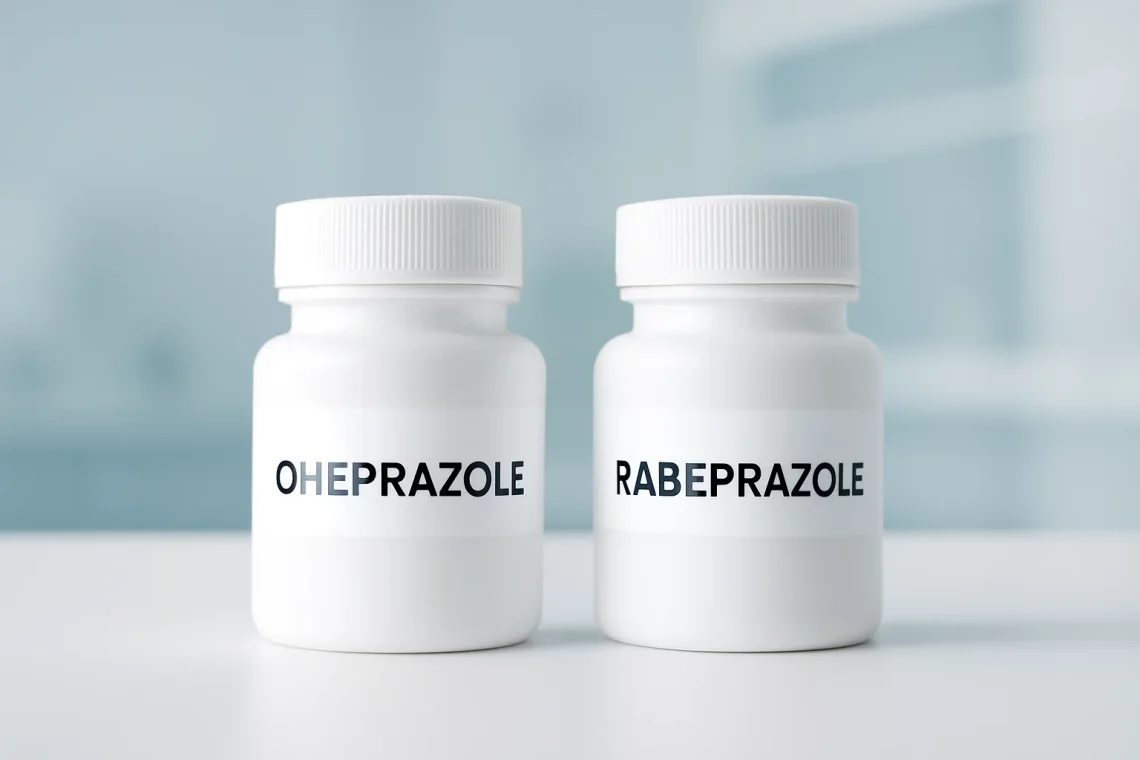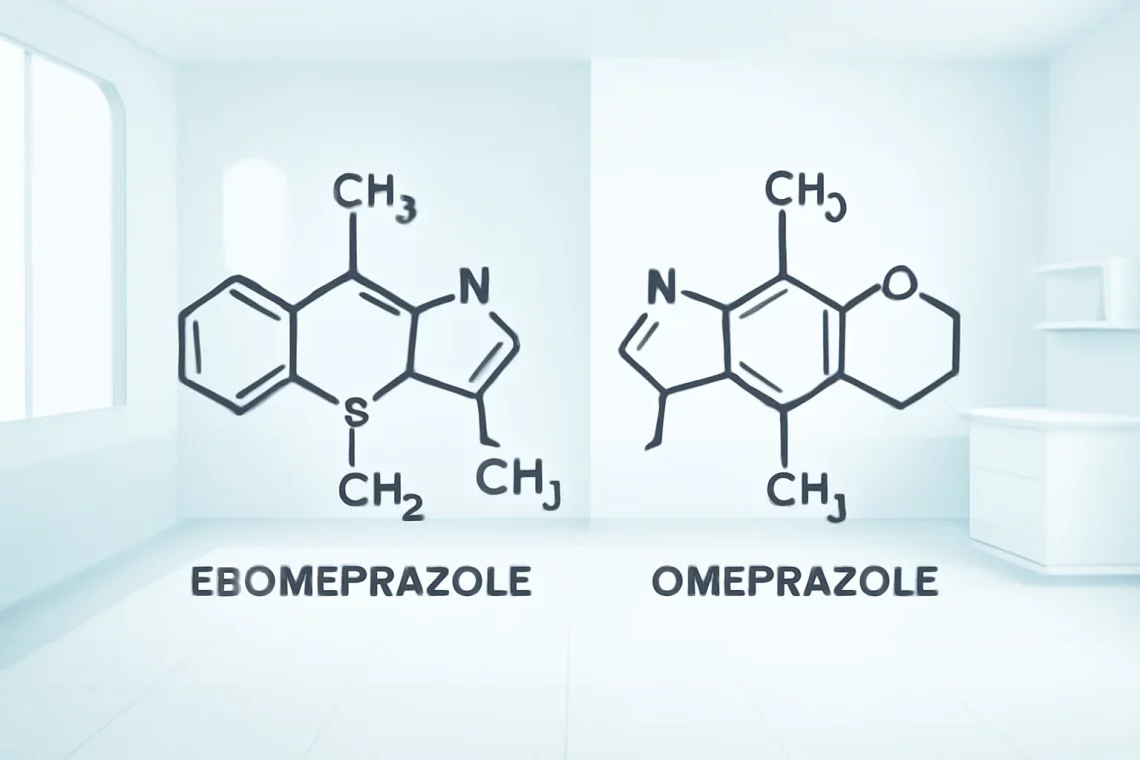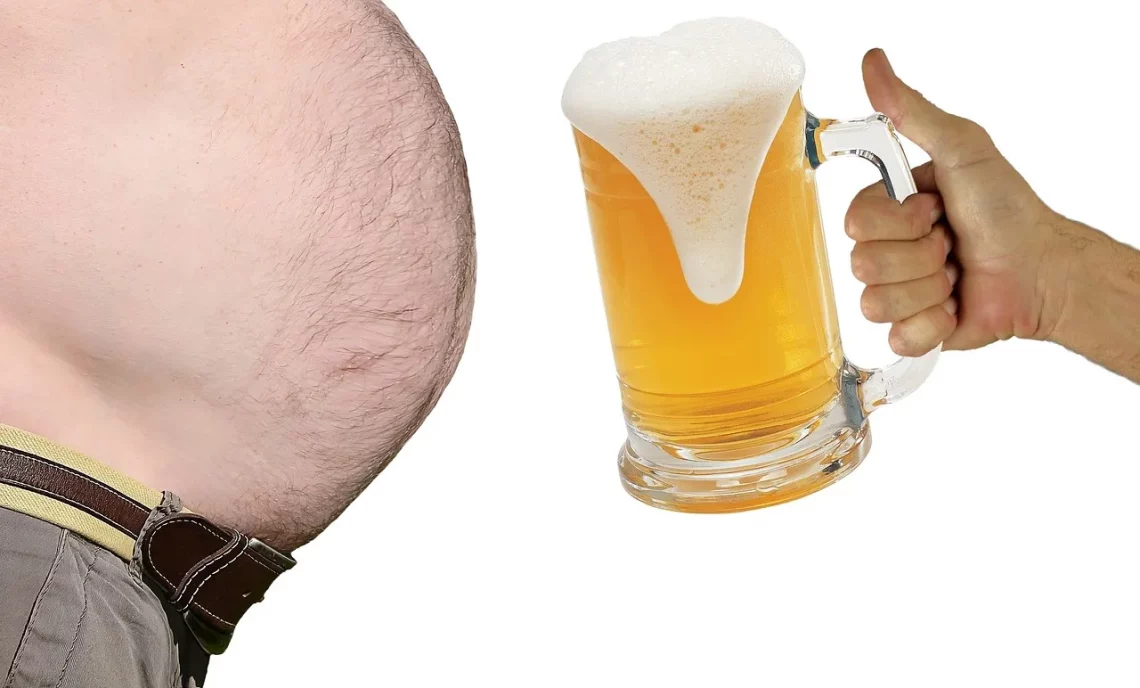-
Omeprazole vs Rabeprazole: A Comprehensive Comparison of Two PPIs
Omeprazole and rabeprazole are two medications that belong to a class of drugs known as proton pump inhibitors (PPIs). These medications are widely used to treat various gastrointestinal disorders, primarily by reducing the production of stomach acid. For many individuals suffering from conditions such as gastroesophageal reflux disease (GERD), peptic ulcers, or Zollinger-Ellison syndrome, PPIs provide significant relief by alleviating symptoms and promoting healing of the esophagus and stomach lining. Despite their similarities in action, omeprazole and rabeprazole have distinct characteristics that may influence a physician’s decision when prescribing these medications. Factors such as efficacy, side effects, drug interactions, and patient-specific considerations can all play a role in determining which…
-
Esomeprazole vs Omeprazole: Which is Right for You?
Esomeprazole and omeprazole are both medications that belong to a class known as proton pump inhibitors (PPIs). These drugs are primarily used to treat conditions related to excessive stomach acid, such as gastroesophageal reflux disease (GERD), peptic ulcers, and Zollinger-Ellison syndrome. With the increasing prevalence of acid-related disorders, the importance of understanding these medications has grown significantly. Esomeprazole, often marketed under the brand name Nexium, is a specific isomer of omeprazole, which means that it has a slightly different chemical structure and may offer distinct pharmacological properties. Both medications work by blocking the proton pump in the stomach lining, effectively reducing the production of gastric acid. As a result, they…
-
Understanding the Thickening of Stomach Lining and Its Implications
The stomach is a remarkable organ, playing a crucial role in the digestive system. It serves as a reservoir for food and is responsible for breaking down nutrients, which are essential for our overall health. However, the lining of the stomach is susceptible to various changes, including thickening, which can impact its functionality and lead to a range of symptoms. Understanding the mechanisms behind the thickening of the stomach lining is essential, as it can indicate underlying health conditions or dietary issues. As we delve into this topic, we will explore how the stomach lining functions normally, what causes it to thicken, and the potential implications of this condition. By…











